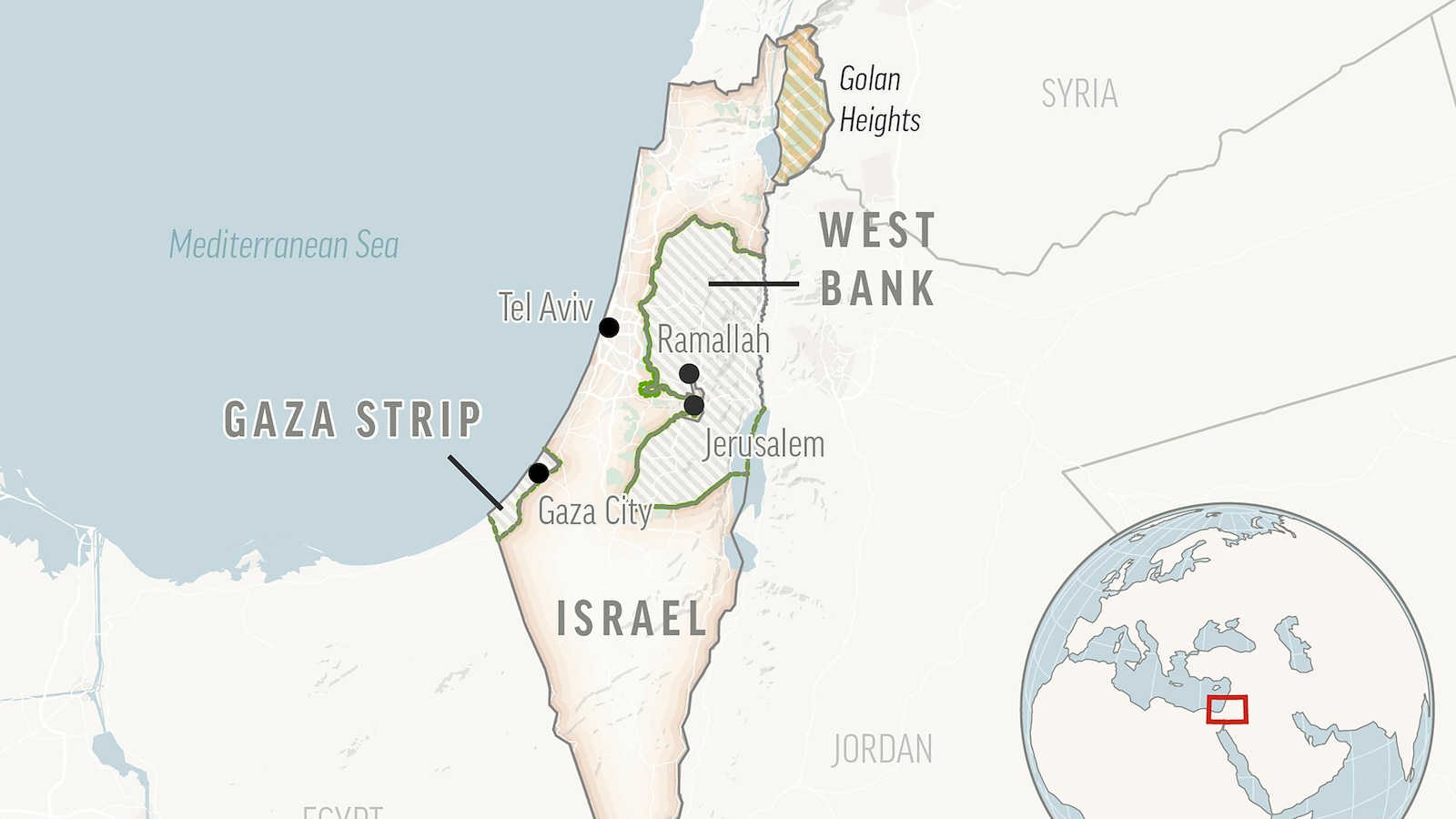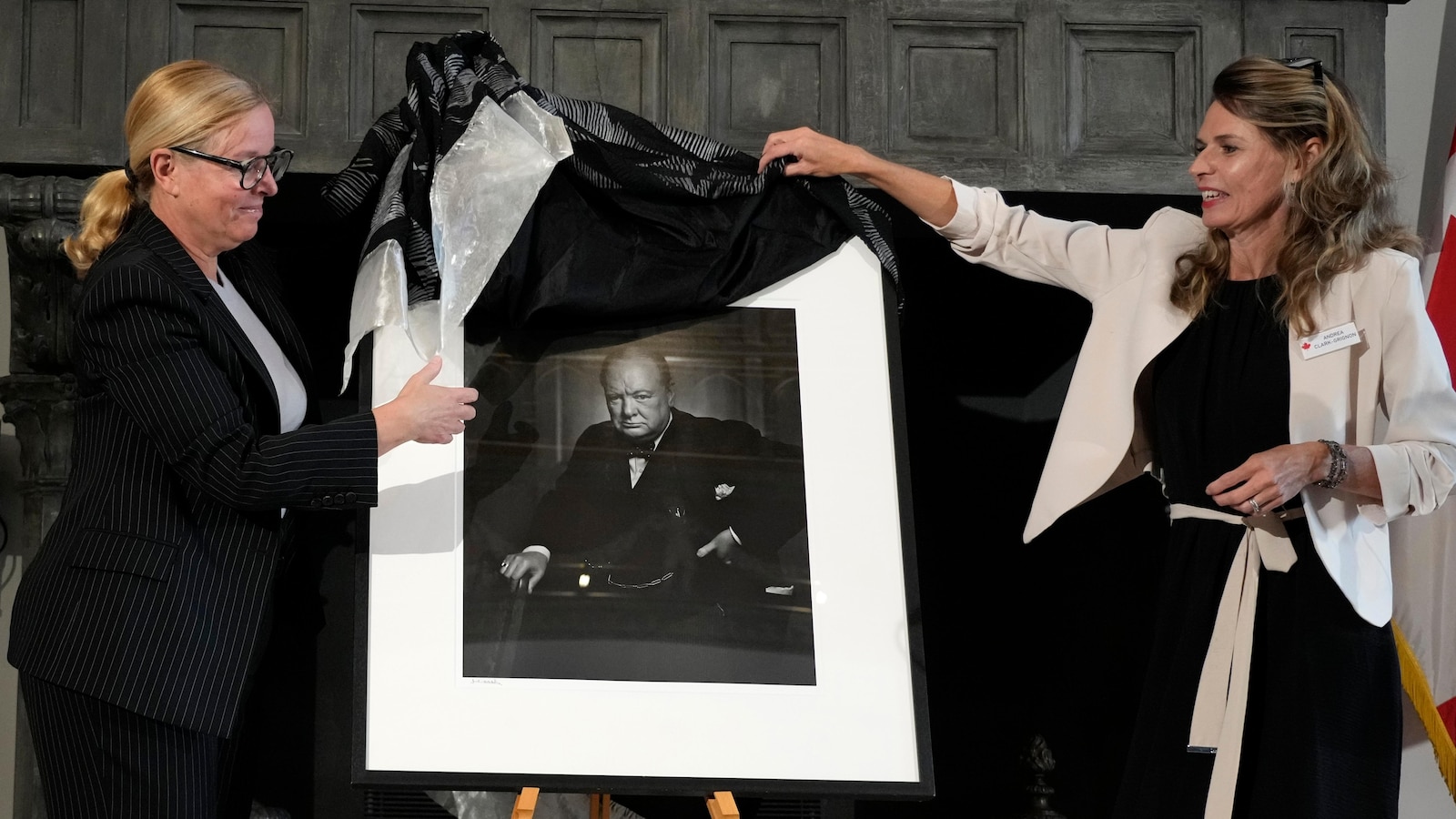
RAMALLAH, West Bank — Palestinian factions Hamas and Fatah signed a declaration in Beijing on ending a yearslong rift, Chinese state media said Tuesday, taking a step toward potentially resolving the deep divide between the sides as the war in Gaza rages on.
The declaration by the two heavyweights of Palestinian politics — and other smaller Palestinian groups — to form a unity government for the Palestinian territories is the result of the latest in a series of talks meant to unite the sides.
But previous declarations have failed, including a similar deal in 2011, casting doubt over whether the China-sponsored negotiations might actually lead to a resolution. It also comes as Israel and Hamas are weighing an internationally backed cease-fire proposal that would wind down the nine-month war and free dozens of Israeli hostages held by Hamas.
Still, the future of Gaza is undecided, with Israel vehemently opposed to any role by Hamas in governing Gaza. It has also rejected calls from the United States for the Fatah-dominated Palestinian Authority to run Gaza after the war ends. The lack of a postwar vision for running the Gaza Strip has complicated negotiations over a cease-fire.
Since the current war broke out in Gaza almost 10 months ago, Hamas officials have said that the party does not want to return to ruling Gaza as it did before the conflict, and the group has called for formation of a government of technocrats to be agreed upon by the various Palestinian factions, which would prepare the way for elections for both Gaza and the West Bank, with the intention of forming a unified government.
The two groups signed the Beijing Declaration on “ending division and strengthening Palestinian unity,” according to state broadcaster CCTV.
The two rival Palestinian groups, along with 12 other political factions, met with Chinese Foreign Minister Wang Yi, concluding talks that started Sunday, according to a post on social media platform Weibo from Chinese TV network CGTN.
The agreement also underscores China’s growing role in Middle East diplomacy, with success in the restoration of relations between Saudi Arabia and Iran.
“But to be sure, China is still the process of trying to earn credibility as a global mediator,” said James Char, a research fellow at the Institute of Defence and Strategic Studies at Nanyang Technological University in Singapore.
A joint statement issued after the most recent talks in Beijing gave no details on how or when the government would be formed, saying only that it would be done “by agreement among the factions.” According to the joint statement, the two groups are committed to the creation of a Palestinian state on lands Israel captured in the 1967 Mideast war.
Hamas previously said it would accept a state based on 1967 borders, while also refusing to officially recognize Israel. The Palestinian Authority, meanwhile, abides by interim peace agreements with Israel signed in the early 1990s.
Fatah and Hamas have been rivals since Hamas violently routed forces loyal to Palestinian President Mahmoud Abbas’ Fatah in Gaza in 2007, taking over the impoverished coastal enclave. The Fatah-dominated Palestinian Authority, headed by Abbas, administers parts of the occupied West Bank. It is widely viewed by the Palestinian public as corrupt, out of touch, and a subcontractor for Israel because of their joint security coordination.
Repeated attempts at mending the rift have failed, wrecked by the factions’ own bitter rivalry over power and the West’s refusal to accept any government that includes Hamas unless it expressly recognizes Israel.
United States President Joe Biden’s administration envisions a revamped Palestinian Authority to rule postwar Gaza and has sought a series of reforms that might make it a viable presence in the war-ravaged territory. Israel rejected that idea, but has not put forward a credible alternative for who will govern Gaza.
The Palestinian Islamic Jihad, a smaller militant group allied with Hamas, issued a statement Tuesday after the talks saying that it still “rejects any formula that includes recognition of Israel explicitly or implicitly” and that it had “demanded the withdrawal of the Palestine Liberation Organization’s recognition of Israel.”
___
Goldenberg reported from Tel Aviv, Israel; Wu reported from Bangkok.
In a significant development, Chinese state media has reported that Hamas and Fatah, two major Palestinian political factions, have signed a declaration in Beijing aimed at ending their longstanding rift. The agreement, brokered by Chinese officials, marks a significant step towards unity among the Palestinian leadership and could potentially pave the way for a more cohesive approach to negotiations with Israel.
The rift between Hamas and Fatah dates back to 2007 when Hamas seized control of the Gaza Strip in a violent conflict with Fatah, which controls the West Bank. Since then, the two factions have been at odds, leading to a divided Palestinian leadership and hindering efforts to achieve a lasting peace agreement with Israel.
The declaration signed in Beijing outlines a number of key points aimed at bridging the divide between Hamas and Fatah. These include a commitment to work towards national unity, uphold the principles of the Palestinian Liberation Organization (PLO), and support the establishment of a Palestinian state with East Jerusalem as its capital.
Chinese officials have played a crucial role in facilitating the talks between Hamas and Fatah, with President Xi Jinping personally meeting with representatives from both factions to encourage dialogue and cooperation. China has long been a supporter of the Palestinian cause and has called for a peaceful resolution to the Israeli-Palestinian conflict based on the two-state solution.
The signing of the declaration in Beijing has been welcomed by the international community, with many expressing hope that it will lead to a more unified Palestinian leadership and renewed efforts towards achieving a lasting peace agreement. The United Nations has also praised the agreement, emphasizing the importance of Palestinian unity in advancing the peace process.
While the declaration signed in Beijing is a positive step towards reconciliation between Hamas and Fatah, it remains to be seen how effectively the two factions will be able to implement its provisions and work together towards their common goals. The road to unity will undoubtedly be challenging, but the willingness of both sides to come together in Beijing signals a potential turning point in the long-standing rift between Hamas and Fatah.


